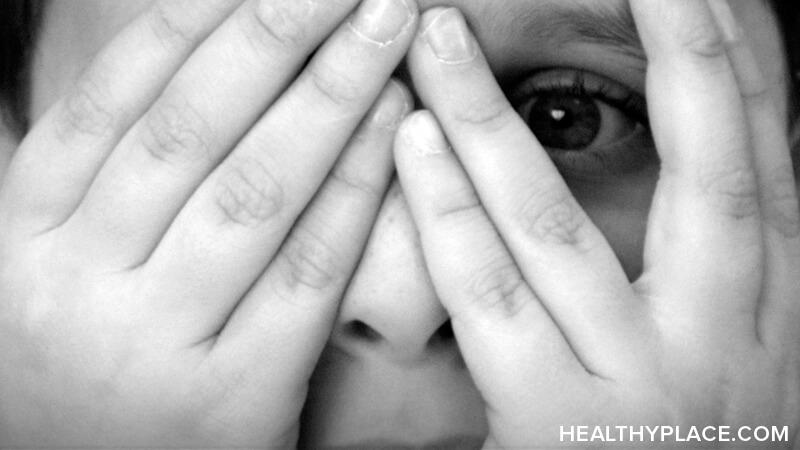Confront Your Anxiety Triggers to Feel Better

When you struggle with chronic anxiety, it can be hard to confront your triggers. But, anxiety occurs as our body's response to stress that we are experiencing or have experienced. Chronic anxiety means that your body keeps experiencing anxious symptoms, even if the stress is no longer present. Meaning, when you experience chronic anxiety, your body is constantly on high alert.
But the problem with constantly being on high alert is that you continue to feel the physical, psychological, and emotional effects of anxiety. And this can be exhausting -- physically, psychologically, and emotionally. Part of managing anxiety is recognizing triggers that cue that anxiety response. And one thing I have found to be important is confronting some of those anxiety triggers.
Why Confronting Your Anxiety Triggers Is Helpful
Anxiety is our built-in fight, flight, or freeze instinct. I find that I will often try to avoid anxiety triggers because of the feelings of fear and worry that accompany them. The problem with avoiding anxiety triggers is that it may help you to feel better temporarily; however, in the longer term, I've found that anxiety increases. By confronting the trigger -- and continuing to confront it -- my anxiety has lessened over time.
How to Confront Your Anxiety Triggers
Developing a plan to confront your anxiety triggers is a step in the right direction to help you cope. I have found that timing is important, and sometimes it is not the best time to confront certain triggers. But, being aware of your triggers and being willing to develop a plan is a great start. Here are a few steps to help you cope:
- Identify your triggers. You can do this by using a journal or any other form of self-reflection. I find it helpful to journal as well as to talk to someone I trust. Being aware of things that trigger anxiety is the first step in confronting them.
- Decide if it will be healthy to confront your trigger. Dealing with serious trauma can be extremely difficult, and it is important to be careful with this. Enlisting the help of a mental health professional may be best in these situations.
- Schedule whatever it is you need to deal with into your calendar. This might sound a bit odd, or it might sound like something you are unlikely to do. However, if you are anything like me, you might find it imperative to follow a schedule. If you schedule that confrontation into your calendar, you might find that you are more likely to deal with it. An alternative to this may be putting up notes around your home as a visual reminder.
- Have someone hold you accountable. Talk to someone you trust about what it is you are trying to confront. Explain to them your worries and what you are most fearful of. That person can not only hold you accountable for confronting your fear, but they can also help to support you as you are trying to deal with it. For me, this is most often my husband. I have found that it is important for me to explain to him how I feel as well as what I would like to do to confront the trigger. Then, he helps to support me as I work to confront it.
Try these suggestions to help you confront your anxiety triggers. If there are strategies you use that you have found work for you, share them in the comments below.
APA Reference
Bermio-Gonzalez, R.
(2021, June 8). Confront Your Anxiety Triggers to Feel Better, HealthyPlace. Retrieved
on 2026, January 14 from https://www.healthyplace.com/blogs/treatinganxiety/2021/6/confront-your-anxiety-triggers-to-feel-better
Author: Rizza Bermio-Gonzalez
Wonderful piece. Anxiety, similar to shame, can be so hard to acknowledge or confront. Often times, it's the last thing we want to do, and yet, we will automatically minimize it when we do. When we try to ignore our anxiety or hide it, it only lingers and grows. Confronting our anxiety is actually a way to diminish the power we think it has. Lovely suggestions.
Hi Lizanne,
You brought up such a great point about our reluctance to confront anxiety and then minimizing it when we do. It can be so hard to confront anxiety -- until we realize how helpful it can be to do so.
Thank you so much for your comments.
Rizza